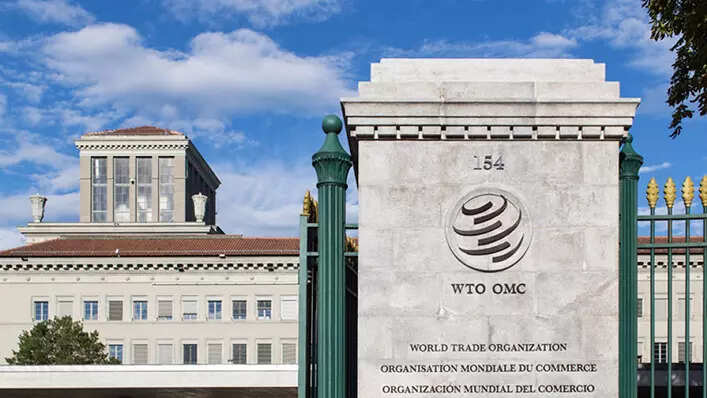
Two Indian industry associations – the India Electronics & Semiconductor Association (IESA) and the India SME Forum- have supported the continuation of prohibition of imposing customs duties on electronic transmissions at the World Trade Organization (WTO), citing it to be important for supply chain resilience post Covid.
The two industry bodies made this submission to the global trade watchdog as part of a consortium of around 170 global associations. The submission comes amid India and South Africa pushing hard for the prohibition to end as it leads to revenue loss and are keen on an outcome on the issue before the WTO’s 13th ministerial conference (MC13) later this month. The moratorium on customs duties on electronic transmissions is in place since 1998. Around 105 countries, including the US, the UK, Australia, China, and Japan favour this prohibition.
“Continuation of the moratorium is also important to supply chain resilience for manufacturing and services industries,” the associations said.
As per the submission, the moratorium is particularly beneficial to Micro, Small and Medium-Sized Enterprises (MSMEs), whose ability to access and leverage digital tools has allowed them to stay in business amidst physical restrictions and lockdowns during the Covid-19 pandemic.
“Failure to renew the moratorium will jeopardize these benefits, as customs restrictions that interrupt cross-border access to knowledge and digital tools will harm MSMEs and the global supply chain – increasing digital fragmentation,” they said. The United Nations Conference on Trade and Development has pegged a global loss of $10 billion per year in potential customs duties due to the moratorium, with 95% of this loss borne by developing countries.
Vinod Kumar, president, India SME Forum said that Indian MSMEs export around $90 billion of services annually and all IT enabled services exports would get impacted if customs duties are imposed.
The WTO MC13 will be held in Abu Dhabi from February 26-29.

